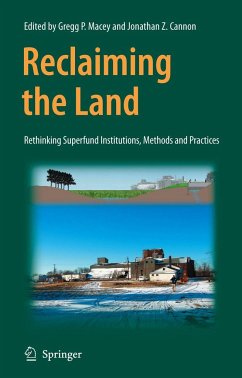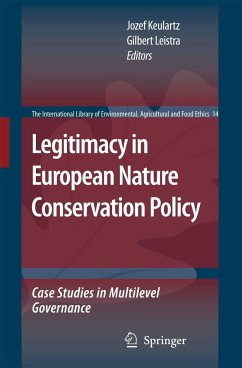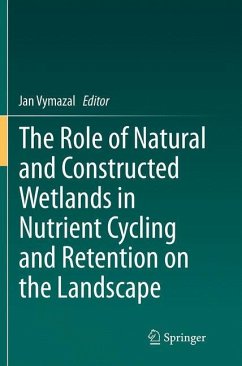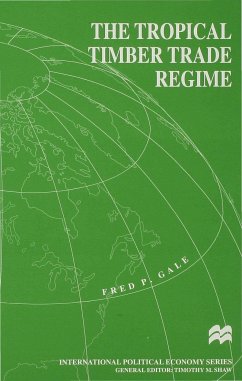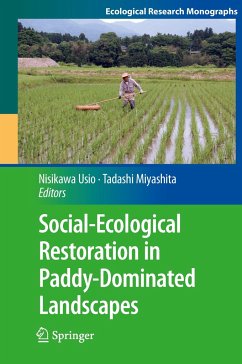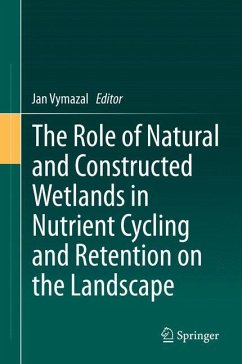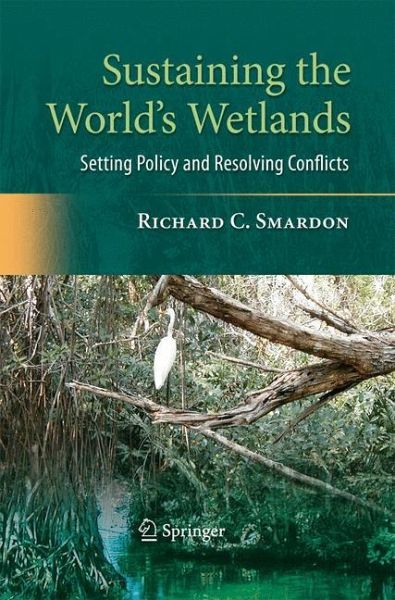
Sustaining the World's Wetlands
Setting Policy and Resolving Conflicts
Versandkostenfrei!
Versandfertig in 6-10 Tagen
38,99 €
inkl. MwSt.
Weitere Ausgaben:

PAYBACK Punkte
19 °P sammeln!
Wetlands throughout the world, including those described in this book are among the most sensitive and vulnerable ecosystems. They are critical habitats to the world's migratory birds and a broad range of endangered mammal, reptile, amphibian, and plant species. They provide a broad range of flood storage, pollution control, water supply, ecotourism functions to indigenous peoples and country populations as a whole. They are also at the center of severe land and water use conflicts. These are conflicts between counties where wetland resources or the water supplies required for such resources i...
Wetlands throughout the world, including those described in this book are among the most sensitive and vulnerable ecosystems. They are critical habitats to the world's migratory birds and a broad range of endangered mammal, reptile, amphibian, and plant species. They provide a broad range of flood storage, pollution control, water supply, ecotourism functions to indigenous peoples and country populations as a whole. They are also at the center of severe land and water use conflicts. These are conflicts between counties where wetland resources or the water supplies required for such resources involve more than one country. These are conflicts in use such as conflicts between habitat protection and charcoal production in mangroves. These are conflicts between groups of peoples such as indigenous peoples and hydropower advocates. Many wetlands have already been destroyed by water extractions, dams, levees, channelization, and fills. Others have been degraded by water pollution, overfishing and overhunting, timber harvest, and a host of other activities. This book describes these conflicts and international policies and institutions developed to protect and manage wetland resources. Most of the broader literature and other books on wetlands focuses on wildlife. Wildlife is described in the case studies, which follow. But, Richard Smardon provides us with more. He traces the history of conflicts and the development of policies and insti- tions to protect and manage wetland resources.





